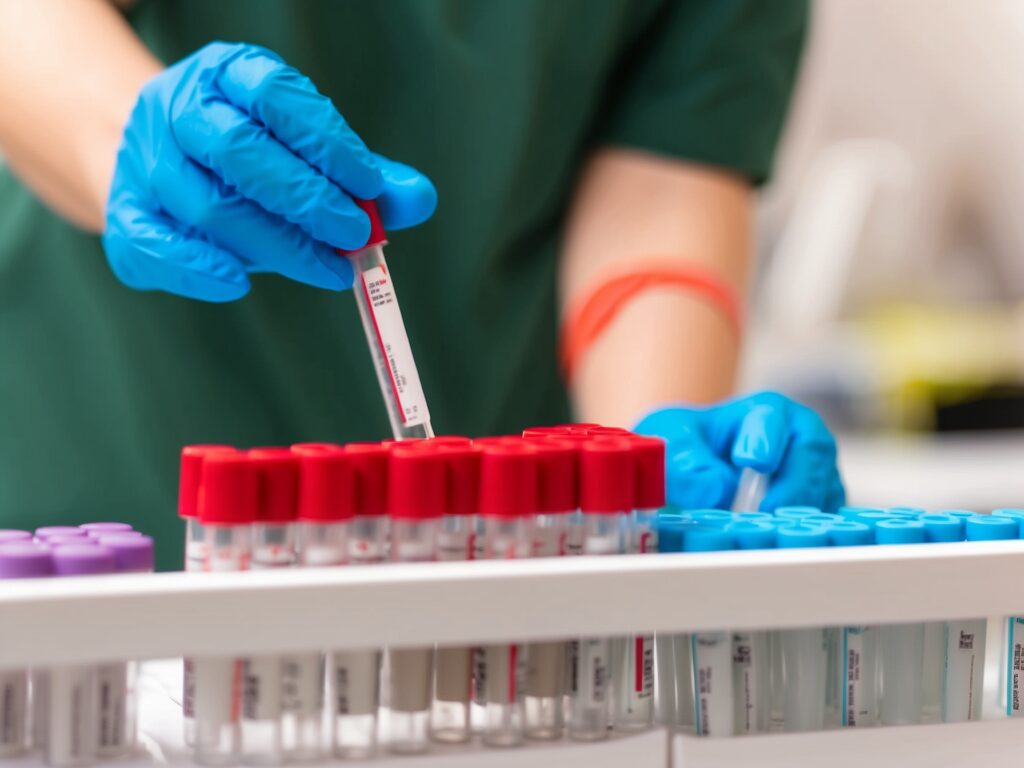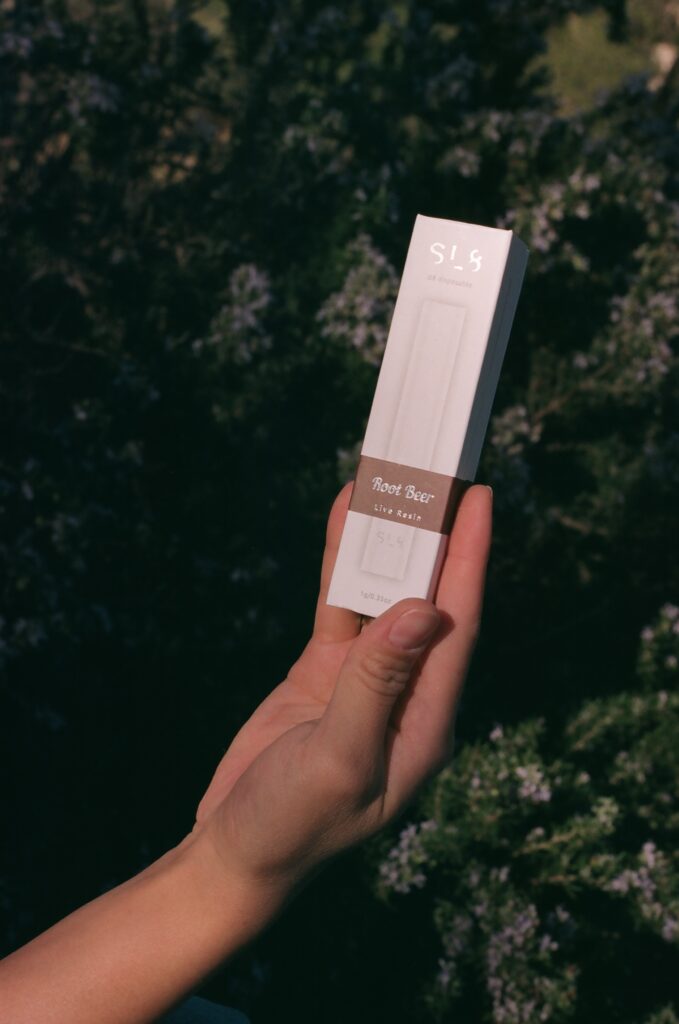Does Delta 8 Show Up on a Drug Test? Surprising Answer Inside!

Key Takeaways
- After consuming Delta 8, the liver converts it into THC-COOH.
- Routine drug tests don’t look for Delta 8, instead, they look for the metabolite of this cannabinoid.
- Any person who consumes Delta 8, regardless of the type of product consumed, can test positive in a drug test.
- Urine tests can detect the metabolites even 2-4 weeks after consumption. Blood and saliva tests can detect it 1-3 days after consumption and hair follicle tests can detect it even up to 90 days after consumption.
- Routine drug tests cannot tell the difference between D8 and D9 as they both produce the same metabolite.

The Delta-8 Drug Test Loophole
The legality of delta 8 is an issue that has been widely discussed since the passing of the 2018 Farm Bill. Many claim that there is a “gray area” or a legal vacuum due to the wording used to approve the distribution of hemp-derived products containing delta THC.
The farm bill which made legal hemp by differentiating it from marijuana, states that it’s legal to produce hemp and its derivatives, and it classifies it as an agricultural commodity. Nonetheless, the legal status of delta 8 is still not so clear.
This is because, at the federal level in the United States, the bill does not mention anything about Delta-8 THC or the allowed levels of this substance in products. According to the legislation, hemp is defined as a plant that contains less than 0.3% of Delta 9 THC, but it doesn’t mention anything about D8 THC or any other cannabinoid.
It does mention the difference between marijuana and hemp, as the former contains about 25% THC, whereas the latter should remain at the above-mentioned levels to be legal, as per the Food and Drug Administration (FDA).
This is why delta-8 THC products are legal, as there is an omission of the substance in the law, so delta-8 is legal if it comes from hemp and has the allowed content of D9 THC.
However, it’s worth noting that the sale of delta-8 is not legal in some states due to the Controlled Substance Act. In places like Arizona, Oregon, Colorado, and Washington, there are strict laws about the commercialization and usage of D8.
Will Delta 8 Test Positive? Can It Cause You to Fail a Drug Test?

When it comes to drug testing, most routine tests don’t look for the specific substance, but for the metabolites of these cannabinoids. Since D8 and D9 have a similar chemical structure, both are metabolized by the body and produce a similar metabolite, which is THC-COOH.
Thus, most urine drug tests look for this metabolite. Given that delta 8 THC is a psychoactive that produces this metabolite, then the test will be positive if there are any remnants of delta-8 THC in your system.
Though you have nothing to fear, you can delight in the benefits of delta 8 and consume it without any guilt, as long as you’re not going to undergo a drug test. Make sure to abstain from using the substance at least one month before taking the test.
Moreover, in case of a random workplace drug testing for delta, you can follow a few measures to eliminate it from your body so that you won’t get a positive result.
Do Edibles Show Up in Drug Tests?
D8 edibles are preferred by those who look to experience a mellow buzz and psychoactive experience without having to smoke.
These gummies with delta 8 get you high by slowly releasing the substance through a process called first-pass metabolism. They take longer to take effect and, therefore, they last longer in the body.
Considering this, how long Delta 8 stay in your system when consumed in the form of edibles? This will vary depending on several factors such as dosage, potency, tolerance levels, metabolism, and weight.
For example, a new user who has consumed a 10 mg gummy for the first time may eliminate the substance faster than an experienced user who takes a 50 mg gummy daily. In this case it’s helpful to follow the delta 8 dosage chart.
Also, current drug tests cannot detect a specific substance which may sometimes lead to a false positive for marijuana, even though you have consumed D8 or D9. Drug tests are more specific when carried out by specialized labs, but this is not common.
Moreover, the detection of the substance will depend on the type of test. There are four different types of drug tests used to detect THC and its metabolites.

Urine Test
The drug screening generally refers to a urine test, as it can be highly precise. Delta 8 can still be detected in your urine for 2 to 4 weeks after your last consumption, and it can still be positive even 90 days later for some chronic users.
A urine test can detect THC in your system, but it cannot determine specifically if you have used a delta-8 product. It can only detect the metabolites but not the type of product itself.
Blood Tests
Hair Tests
Saliva Tests
Generally, a saliva test can detect the metabolites for up to 24–48 hours after ingestion. However, some researchers have found THC even 72 hours after consumption in chronic users.
How to Pass This Drug Analysis?

D8 is a substance highly sought after by those who want to enjoy a mild buzz without the psychoactive effects of D9 that can interfere with their mental state. Once you use delta-8 THC you can almost immediately feel pleasant sensations like a clear mind and the relief of anxiety.
In this regard, the benefits of delta 8 THC are many but, if you’re not used to consuming THC, it may be too strong for you, and you could face the serious side effects of delta-8. Nonetheless, if you consume the proper dosage, and don’t exceed your tolerance level, you’ll be fine.
What happens when you have consumed it and are looking for a way to pass a drug test? In this case, you need to follow some helpful tips that may accelerate the rate at which delta 8 THC is eliminated from your system.
If you want to pass a drug test, you need to know how to clear Delta 8 from your system. First of all, you have to abstain from consuming the substance until you have taken the test.
Since the metabolites are stored in adipose tissue, which is from the body fat percentage, it’s recommended to do a moderate-intense workout to get rid of toxins, as it could potentially affect how long delta-8 THC remains in your body.
There are also natural detoxification agents like lemon juice and cider vinegar that help you clear your system from the substance.
Lastly, if you need to pass a drug test it’s recommended to consume diuretic foods, such as watermelon or hibiscus tea, as they can help you clear your urine faster.
Even though Delta-8 is less potent than delta 9, it doesn’t mean it lasts for less time, as it has been proven that these two substances behave similarly.
Is There a One-Time Edible User Drug Test in the Market?
A one-time edible user drug test doesn’t exist in the market, as no test can detect if you have consumed a specific product. Routine drug tests can determine metabolites of THC and your liver will produce them once you consume delta 8, regardless of the type of product you’ve consumed.
However, there is a way to know you’ve consumed an edible even if it doesn’t show up on a drug test specifically.
This is because when you consume edibles the high takes longer to hit, as they have to be digested first. Then, once it has entered your bloodstream, it may take between 30 and 80 minutes to kick in. Thus, this means that it lasts longer in the body.
By consuming edibles, the time that it takes to clear Delta 8 from your system is longer compared to other products. Given that with edibles the peak effects can be felt after 3–4 hours, and last up to 8 hours, it’s worth asking can delta-8 cause you to fail a test? It’s more likely when you’ve consumed edibles than when smoking.
If you have used D8, even eaten just a single edible, and the substance or its metabolites are still in your body when you are tested, it can make you fail a drug test result.
Current drug tests can detect recent drug use of delta-8 THC but, also, they can detect traces that are left in your body, even if the last time you’ve consumed it was one month ago.
Can a Drug Test Tell The Difference Between D8 and Another Substance?
Delta 8 and Delta 9 are two cannabinoids that are very similar in their chemical structure. The only difference between them is the location of the double bond. Given D8’s similarity to delta 9 THC, basic drug tests cannot detect the difference between them.
Delta-8 THC is similar chemical structure to delta 9 THC, thus, when consumed, the body produces metabolites that are highly similar with only slight differences.
So, the structural similarity between the two metabolites makes it somewhat harder to differentiate between these substances, unless the laboratory has specialized techniques and equipment to detect their differences.
Few toxicology testing laboratories offer testing for delta-8 tetrahydrocannabinol specifically.
Even when it comes to consuming other cannabinoids there may be a false positive. For example, a person who has consumed THC-P products and is tested may be positive for THC, particularly if the product has traces of this substance.
In the case of HHC, which has one ring within the THC molecule, it’s also likely to produce a positive result, although there’s not much research about it.
To sum up, Delta-8’s metabolite can show up on drug tests, but, in most cases, it cannot be differentiated from another substance unless it’s a specialized test.
Do Delta 8 Pens Show Up on Drug Tests? What About Other Products?

As we have mentioned before, routine drug tests don’t look for a specific product, but for the metabolites of D8. In this regard, whether you’ve consumed a delta 8 vape or eaten an edible is not important, because the test will look for THC-COOH, which can be metabolized by your liver from Delta-8, regardless of the method of consumption.
However, it’s worth noting that the duration of delta 8 in your system varies considerably depending on how you have consumed it. Delta-8 THC may last longer in your body if you have consumed an edible and for less time if you have smoked it.
This is because by smoking delta 8 carts the smoke enters your lungs and reaches your bloodstream. In some cases, by taking a single puff you can almost immediately feel the effects. Whereas with delta 8 gummies, you have to take it and then digest it before it can reach your bloodstream. This process will last longer. Therefore, it takes longer to be eliminated from your body.
The same happens with D8 tinctures. Although delta-8 can take effect more quickly with tinctures than with gummies, as it’s absorbed by the mucous membranes of the mouth, you still have to wait at least 30 minutes to feel the effects.
When it comes to buds, a THC product which may be considered the most versatile, you can smoke them and feel the effects in less than 15 minutes.
In the case of dabs, since they’re very potent, once you start smoking you can feel an instantaneous high that could last anywhere from 2 to 12 hours. This is because most unwanted materials are eliminated from the cannabis plant when preparing dabs, and thus they’re purer and more potent.
Do Doctors Have to Report Positive Drug Tests?

As with any other medical information, the results of a negative or positive drug test should remain confidential. This is because there must be trust between the patient and the doctors, regardless of the type of drug test and its result.
For example, it’s normal for employers to request standard drug tests for applicants before being hired but, according to federal statutes like ADA, HIPAA, and some employment laws, whether the person has a failed drug test or has passed it, it should be confidential, as long as it’s for employment purposes.
Nonetheless, a person’s test positive result may be disclosed in some cases where the law requires it. Some of these situations may include investigatory proceedings, litigation, or any claim that involves drug testing.
On the other hand, in some work applications, applicants sign a release of the results of the drug test for the employer, so, in this case, the result can be disclosed.
Lastly, considering that delta-8 THC is a cannabinoid that remains in your system for a while, these tests don’t only detect recent use, so even if you take a test and you haven’t used the substance for weeks, it still can be positive.
Keep in mind that every substance has side effects and the risks associated with this cannot be overlooked if you have a medical condition. It’s best to avoid its use during pregnancy and consult your physician before use in case you have doubts.



